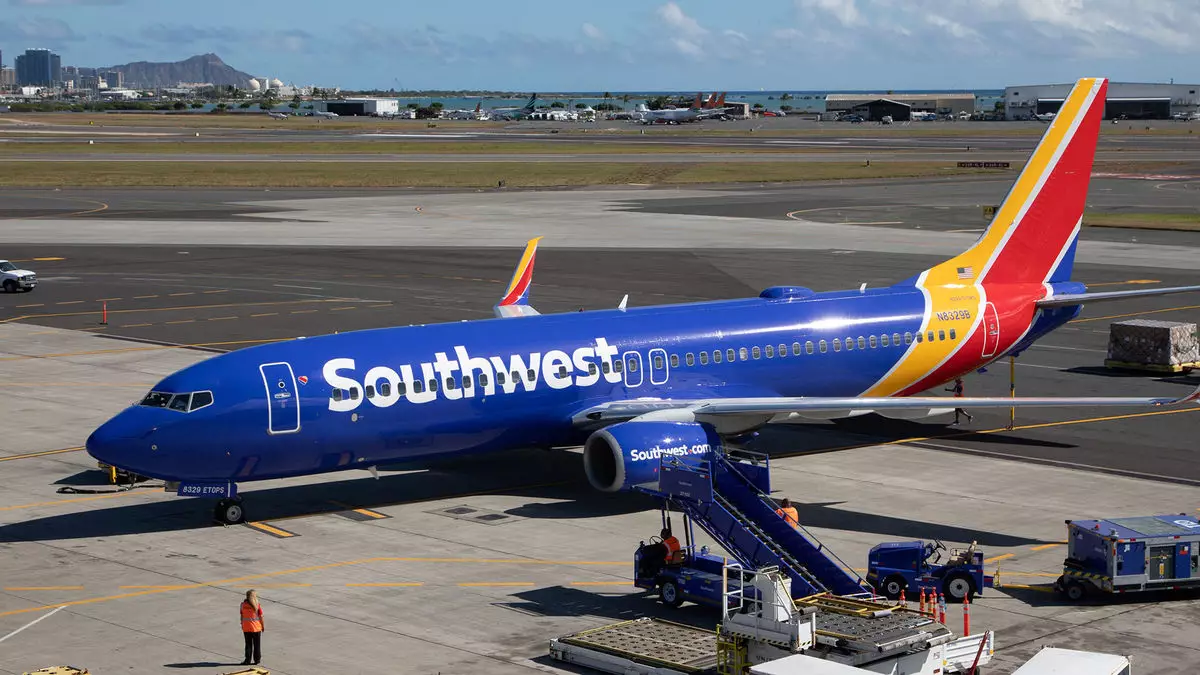In recent years, the conversation surrounding Diversity, Equity, and Inclusion (DEI) has gained substantial traction, particularly in the wake of social movements advocating for justice and equality. However, the arrival of the Trump administration brought about a significant shift in the DEI landscape with the introduction of policies that directly counter these initiatives. This raises pressing questions for companies like Southwest Airlines, which have publicly committed to fostering a culture of diversity. The dilemma they now face is how to navigate a potentially hostile political environment while standing by their DEI principles.
Despite being a private entity, Southwest Airlines must remain attentive to the broader implications of governmental changes and their potential effects on public perception and corporate responsibility. Bob Jordan, the CEO of Southwest Airlines, recently indicated during an earnings call that the company would persist in prioritizing its DEI initiatives. This steadfast commitment comes in light of directives from the Trump administration, specifically one that sought to dismantle numerous DEI programs across federal agencies. While this order does not directly impact private firms, the fear of backlash from an administration opposed to DEI policies could create pressure on companies like Southwest.
A notable incident that illustrates Southwest Airlines’ grappling with DEI is the recent title change by Juan Suarez, the former vice president of DEI. His transition to the vice president of corporate citizenship and chief inclusion officer raises eyebrows. Is this a mere rebranding, or does it signify a realignment of corporate objectives in response to external pressures? Titles carry weight in corporate culture, and such changes can reflect the underlying strategies an organization employs to remain compliant with shifting political winds while still showing a semblance of commitment to DEI practices.
Jordan’s statements about evaluating potential changes in response to executive orders underscore the tension between maintaining a DEI strategy and adhering to new political realities. The executive orders signed on Trump’s first day in office not only affected federal entities but also raised questions about corporate accountability. Although Southwest Airlines is not required to follow suit, the ramifications of non-compliance within the market remain a concern. Companies may fear being scrutinized or facing repercussions from a federal administration focused on dismantling DEI initiatives.
As corporations navigate these turbulent waters, one underlying principle must remain at the forefront: authenticity. While adapting to external pressures, companies like Southwest should strive to maintain the integrity of their DEI commitments. Shifting titles and corporate strategies can only go so far; true commitment to diversity, equity, and inclusion must be reflected in genuine actions and policy implementations that resonate with both employees and the communities they serve.
As the political landscape continues to evolve, so too must corporate strategies regarding DEI. For companies committed to fostering inclusive environments, the challenge lies in balancing compliance with authenticity, ensuring that their efforts contribute to a more equitable society, regardless of external circumstances.


Leave a Reply